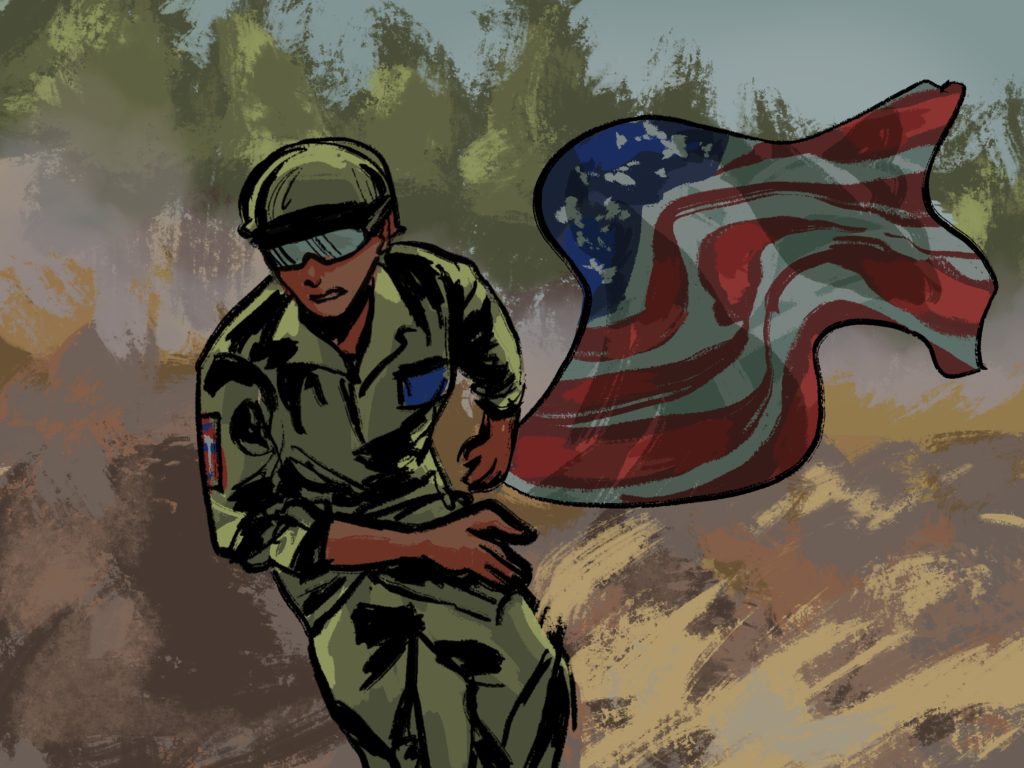
By Ethan Zhang ’26
Being handed a weapon and pushed onto a battlefield presents a stark contrast to the comparatively tame American nine-to-five lifestyle. Mandatory military service seems like a dystopian violation of free will to most Americans. To continue foreign interests and international influence without returning to mandatory service, the U.S. must find new ways to revitalize interest in the military.
Where values such as individualism and liberty are of utmost importance, the U.S. currently follows a voluntary model for military service after they abolished military conscription in 1973. This was a watershed moment in which the U.S. military began prioritizing compensation.
Voluntary service allows the U.S. to ensure that their soldiers were committed to the military’s objectives, as they chose to join the institution of their own volition. U.S. Deputy Secretary of Defense Kathleen Hicks said, “The U.S. military’s retention numbers are outstanding, with every service exceeding 100% of their goals in 2022.”
Despite this remarkable statistic, the The U.S. Army Recruitment Command (USAREC) shows that the number of military personnel declined by approximately 6% from 2020 to 2021. During a time of global strife, it’s become essential that the U.S. maintain its militaristic fortitude.
Instead of increasing army population via mandatory service, the U.S. should consider pivoting their marketing to appeal to the younger generation. There exists a stigma surrounding the supposedly toxic, exclusive culture in the military.
For instance, the male-dominated composition of the army makes it a discouraging environment for women: the RAND Corporation notes that 22% of female active-component service members experienced sexual harassment; such factors keep female enlistment as low as 16%, with no signs of significant growth in the future.
Moreover, life after honorable discharge can be fraught with challenges. For instance, the risks of post-traumatic stress disorder (PTSD), disabilities, and addiction often stem from serving in the military: the U.S. Department of Veterans Affairs reveals 29% of the Veterans in the Operations Iraqi Freedom experienced PTSD at some point in their life.
Solving the issue of declining enlistment rates requires an adjustment in the military’s outreach to potential recruits and their treatment of its veterans. While mandatory military service may never be the answer, major adjustments are necessary to inspire the new generation to voluntarily serve their country.




